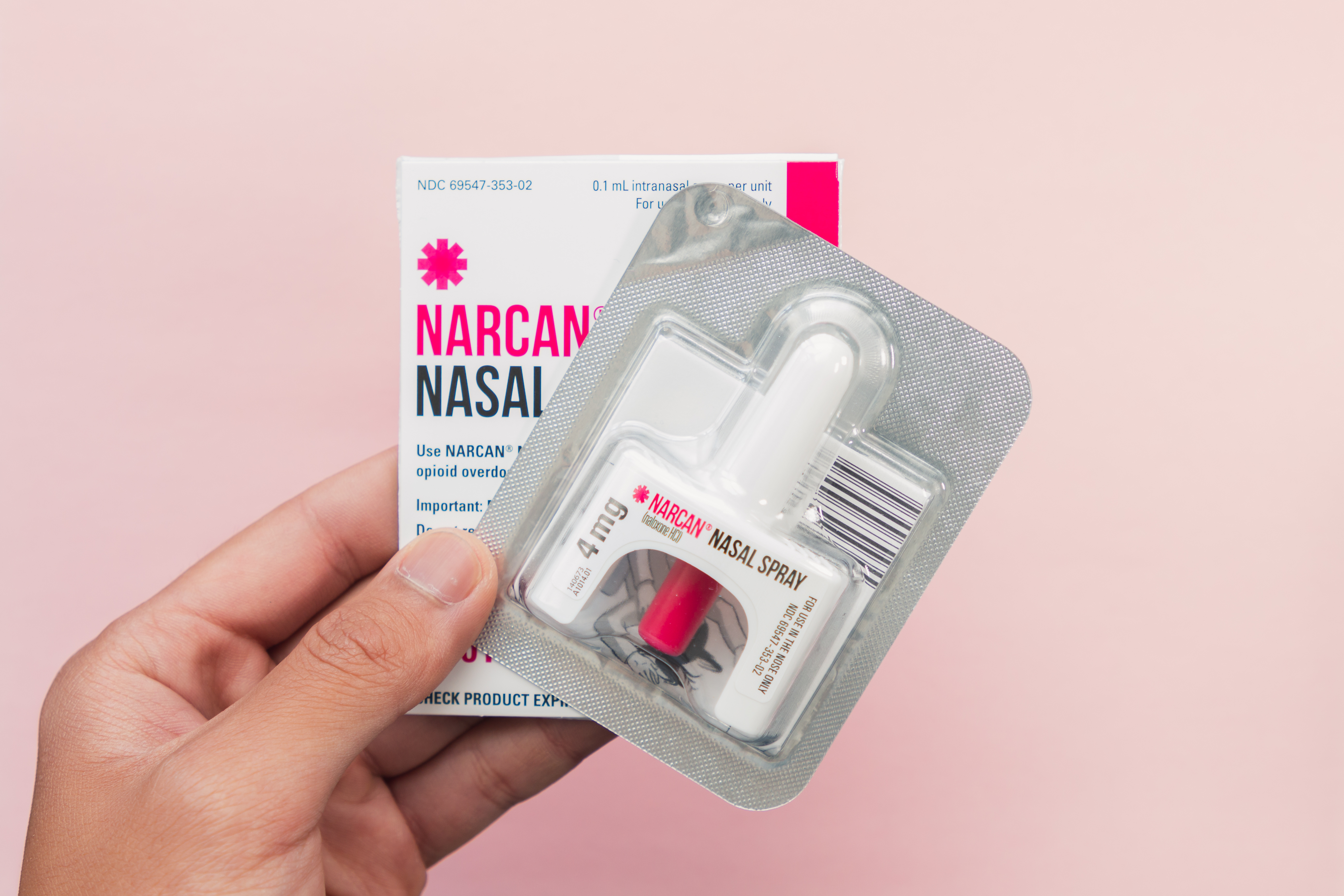Over-the-Counter Anti-Inflammatory Drugs: How to Choose?
Key Takeaways
- Over-the-counter (OTC) anti-inflammatories, also known as OTC non-steroidal anti-inflammatory drugs (NSAIDs), can be used to relieve pain, reduce inflammation, and lower fevers.
- OTC anti-inflammatories are affordable and effective, but should not be used long-term to avoid side effects and other risks
- If OTC anti-inflammatories are not helping your pain, your doctor may recommend a prescription anti-inflammatory or other treatment
Choosing between anti-inflammatory medicines
If you’ve ever sprained your ankle, dealt with a headache or spiked a fever, the odds are that you’ve turned to non-steroidal anti-inflammatory drugs (NSAIDs) as a solution.
Over-the-counter (OTC) NSAIDs are an affordable and effective way to relieve body aches, joint pain, sprains, fever and more. However, these medications can also have serious side effects - especially if they're used too often or at higher-than-recommended doses. To avoid these side effects, it’s important to know which OTC anti-inflammatory medications are right for you.
We’ve put together some helpful information on these pain relievers below, including what they treat, popular NSAID options, and tips for safe usage.
What conditions can over-the-counter NSAIDS treat?
OTC NSAIDS can help relieve many types of discomfort, from reducing fevers to alleviating pain or inflammation from minor sprains and injuries. Here are some common conditions that NSAIDS can provide relief for:
- Back aches
- Headaches or migraines
- Joint pain or stiffness from arthritis and other inflammatory health conditions
- Menstrual cramps
- Muscles aches
- Toothaches
What are your options for OTC anti-inflammatories?
Over-the-counter NSAIDS are available as oral pills or tablets, topical gels or creams, liquids and suppositories. While they can all be used to treat pain and inflammation, they can vary in terms of dosing schedule and cost. Here's how some of the most common OTC NSAIDS stack up against each other:
| Type of OTC NSAID | Standard Dosing Schedule | Brand Name Price (as of 2024) | Generic Price (as of 2024) |
|---|---|---|---|
| Naproxen (Aleve, Naprosyn) | Every 8-12 hours | $15.49 for a 90-count bottle of 220mg Aleve tablets | $11.99 for a 90-count bottle of 220mg naproxen sodium tablets |
| Ibuprofen (Advil) | Every 4-6 hours | $15.50 for a 100-count bottle of 200mg Advil tablets | $1.98 for a 100-count bottle of 200mg ibuprofen tablets |
| Aspirin (Bayers) | Every 4-6 hours | $9.29 for a 100-count bottle of 325mg Bayers | $8.29 for a 100-count bottle of 325mg aspirin |
It’s important to note that Tylenol (acetaminophen) does not have anti-inflammatory properties and is not an NSAID. Tylenol can only treat pain and fever, and cannot help with swelling or stiffness. If you’re trying to decide on an OTC anti-inflammatory, ibuprofen, naproxen and high-dose aspirin will be the best options.
As with any over-the-counter medication, follow the directions on the label closely. Oral NSAIDs are normally taken with a full glass of water to help the medicine absorb properly.
What is the strongest anti-inflammatory over the counter?
Of all the available OTC anti-inflammatories, naproxen (Aleve) is the strongest. It can provide pain relief for a longer period of time than similar doses of ibuprofen or aspirin. Naproxen can help relieve pain from muscle aches and sprains, menstrual cramps, arthritis, the common cold and more.
How do NSAIDS work?
NSAIDs work by preventing an enzyme called cyclooxygenase (COX-2) from making prostaglandins. Prostaglandins are hormone-like substances that cause pain, inflammation and fever. When NSAIDS block prostaglandin production, they’re able to help alleviate your pain and bring down your fever.
However, OTC anti-inflammatories are not intended to be taken as long-term pain relievers. If your pain is persistent, talk to your doctor to see if prescription-strength NSAIDs or other treatments are recommended.
What are the side effects and risks of OTC NSAIDs?
OTC anti-inflammatories are intended for short-term use only. In other words, your risk of side effects increases the more you use them. Some of the most common side effects of NSAIDs include:
- Nausea or vomiting
- Diarrhea
- Stomach upset
- Gas
- Bloating
- Heartburn
More serious side effects include:
- Stomach ulcers and/or stomach inflammation (gastritis)
- GI bleeding that can cause severe anemia
- High blood pressure (hypertension)
- Kidney problems, especially if you have a history of decreased kidney function, kidney disease, or if you have more than 3 alcoholic drinks per day
- Heart damage
Both ibuprofen and naproxen increase your risk of heart attack and stroke. Talk to your doctor before taking NSAIDs if you are at risk of blood clots, stroke, heart attack, heart failure, heart disease, or other heart problems (or have a history of cardiovascular conditions), as it’s likely that you should avoid these medications.
When to avoid NSAIDS
NSAIDs aren’t the right fit for everyone. If you have a history of any of the following medical conditions, you may want to avoid taking an NSAID:
- Blood disease or bleeding disorders:
- Chronic acid reflux (GERD)
- Stomach bleeding
- Stomach ulcers
- High blood pressure
- Heart disease
- Liver disease
- Kidney disease
- Unmanaged diabetes
- History of stroke or heart attack
You should also talk to your doctor before taking NSAIDS if you’re pregnant or taking a blood-thinning medication like warfarin or heparin.
Children and OTC NSAIDs
If you are caring for a child who is in pain or has a fever, talk to your doctor before giving them an NSAID. While NSAIDs are generally safe for children’s use, the dosing amount and frequency depend on your child’s age, weight, diagnosis, and the type of NSAID. Guidance on medications and age range are below:
- Ibuprofen: Ibuprofen (Advil, Motrin) can be used safely in infants 6 months and older. It may be used in children under 6 months under the guidance of your doctor.
- Naproxen: Naproxen (Aleve) can be used by children over the age of 12. If your child is under the age of 12, you should talk to your doctor first.
- Aspirin: Aspirin (Bayers) should never be administered to children under the age of 18. There is a risk of developing a rare condition called Reye’s Syndrome, especially if your child is recovering from a viral infection like the cold, flu or chickenpox.
As with adults, NSAIDs carry a risk of kidney damage and GI upset. These risks are greater if your child’s NSAID doses are higher or longer than recommended. Therefore, it is critical that you follow the recommended dosing instructions for your child’s age and weight on the label.
Most children’s OTC NSAID medicine will also come with a measuring tool, which can look like a cap, syringe, or spoon. To avoid overdose, be sure to use these instead of common household teaspoons, which aren’t always accurate.
Are there prescription NSAIDs?
Yes, prescription NSAIDs do exist. However, prescription NSAIDs are generally stronger than their OTC counterparts. This means that a licensed healthcare provider must authorize their use.
Some common NSAID prescription medications include:
- Ketorolac (Acuvail/Acular)
- Meloxicam (Mobic)
- Celecoxib (Celebrex)
- Indomethacin (Tivorbex)
- Diclofenac (Flector, Cambia)
- Fenoprofen (Nalfon)
- Flurbiprofen (Ocufen)
- Mefenamic acid (Ponstel)
- Oxaprozin (Daypro)
- Piroxicam (Feldene)
- Sulindac (Clinoril)
When should you talk to a doctor?
If you have any pre-existing medical conditions or are taking medications or supplements, you may want to speak with your doctor before taking NSAIDs. You also may want to seek medical advice if NSAIDs are not helping to relieve your pain after 10 days, or helping to lower a fever after 3-5 days.
Your doctor can help determine if NSAIDs are appropriate for your specific situation and recommend the right dosage. They can also explain potential side effects and medication interactions. If you experience any adverse reactions while taking NSAIDs, such as stomach pain, nausea, or vomiting, you should stop taking them and contact your doctor immediately.
How Sesame can help
Dealing with pain, inflammation or fever and need medical advice? Sesame can help. Providers on Sesame can assess your concerns and write a prescription (if appropriate) – or refill an existing one – during a virtual or in-person visit.
Depending on the medication, you can arrange for same-day pickup at a pharmacy near you. Simply browse providers, select a time slot, and book an online doctor appointment with a licensed provider.
Note that all prescriptions are at the discretion of your healthcare provider. Providers on Sesame cannot prescribe controlled substances.









